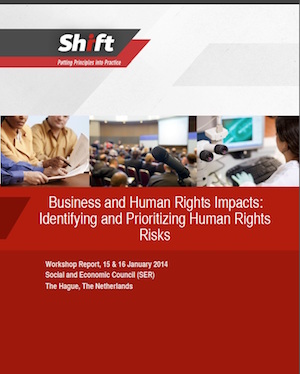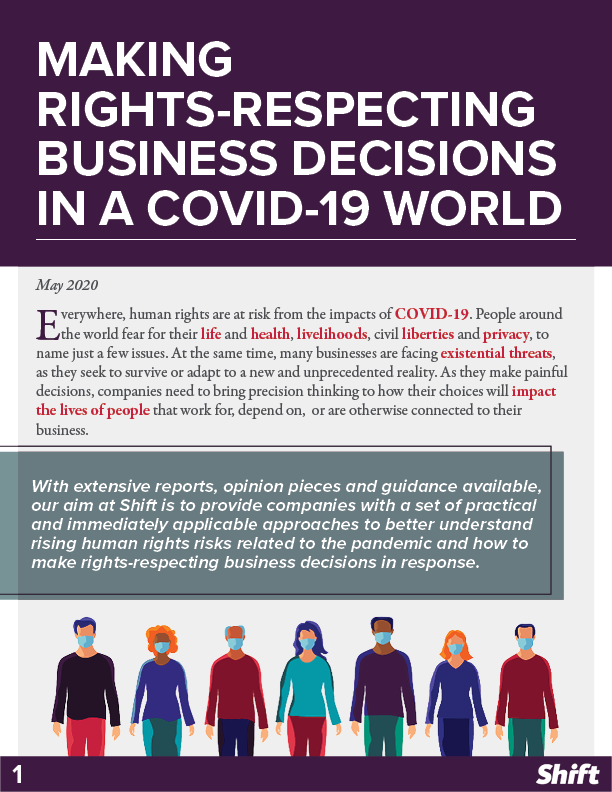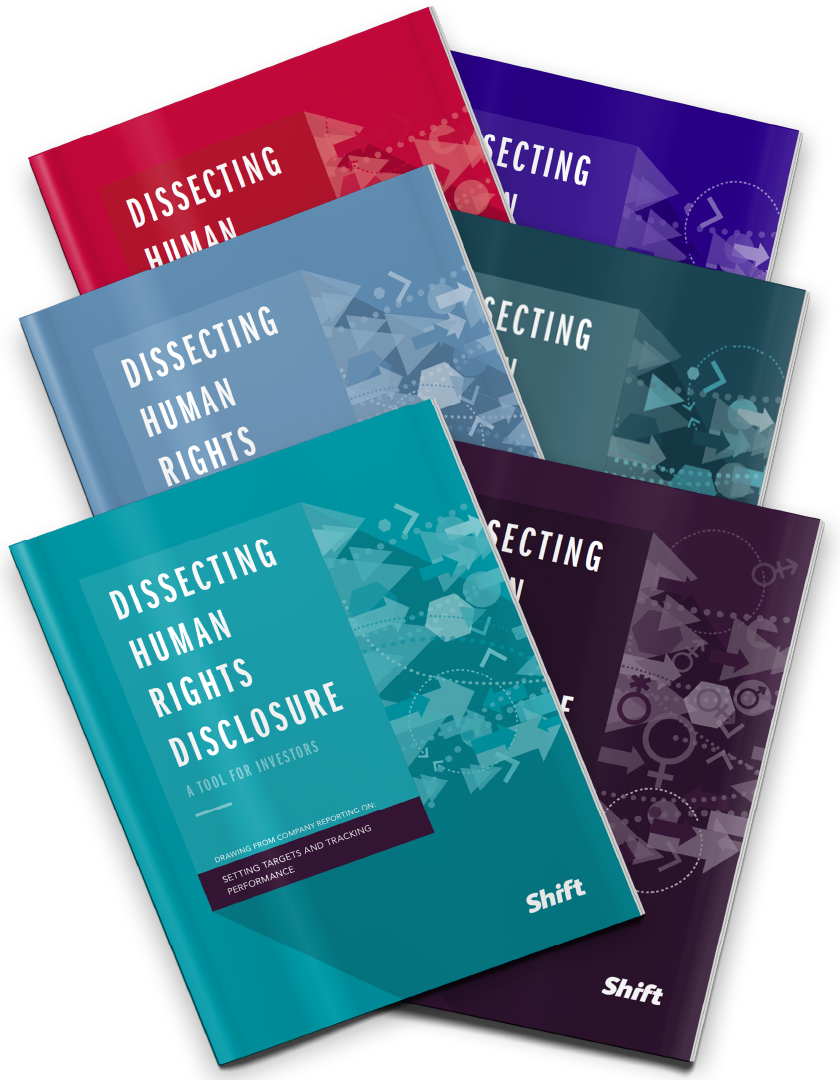This report reflects learning from a workshop with 12 Dutch companies together with expert stakeholders, hosted by the Social and Economic Rights Council of the Netherlands, about how companies can identify and prioritize human rights risks and test their findings through stakeholder engagement. The annex features examples of real company risks and prioritization exercises within a set of analysis tools. This workshop supported the process leading to the development of sectoral covenants in the Netherlands to address human rights risks in global supply chains. | Learn more about our work supporting the broader covenant process
This report summarizes the key lessons learned from a workshop facilitated by Shift on identifying and prioritizing human rights risks. The workshop was convened by the Dutch Social and Economic Council of the Netherlands (SER) on January 15-16, 2014, in The Hague. The workshop involved over 20 representatives from 12 participating companies, as well as 12 expert stakeholders, including from trade unions, NGOs and other non-profit organizations.
The objectives of the workshop were to:
- Build practical experience in applying key tools and approaches for identifying, appropriately prioritizing and taking action on human rights risks;
- Generate broader learning about implementing these approaches to share with a wider audience in order to contribute to evolving understandings of how to put business respect for human rights into practice.
The workshop focused on the first two steps of human rights due diligence as they are elaborated in the Guiding Principles, and incorporated in the OECD Guidelines for Multinational Enterprises – assessing impacts and integrating and taking action on identified impacts. It drew on existing methodologies developed by Shift through its work on putting the Guiding Principles into practice.
In advance of the workshop, participating companies were asked to prepare an initial identification of human rights risks related to their operations. In addition, three pilot companies applied the relevant methodologies in more depth, with support from Shift. During the workshop, participants engaged in table discussions (with three companies and 2-3 expert stakeholders at each table) about the methodologies for identifying, appropriately prioritizing, and taking action on human rights risks. The companies shared their own efforts and received feedback from the other participants.
The role of the expert stakeholders was two-fold: to provide sector-specific knowledge about human rights risks in a particular commodity and/or country, and to help stimulate critical thinking by company participants. Each session ended with a plenary discussion about key learning, as well as common pitfalls and challenges experienced by companies, which are summarized in the body of this report.




